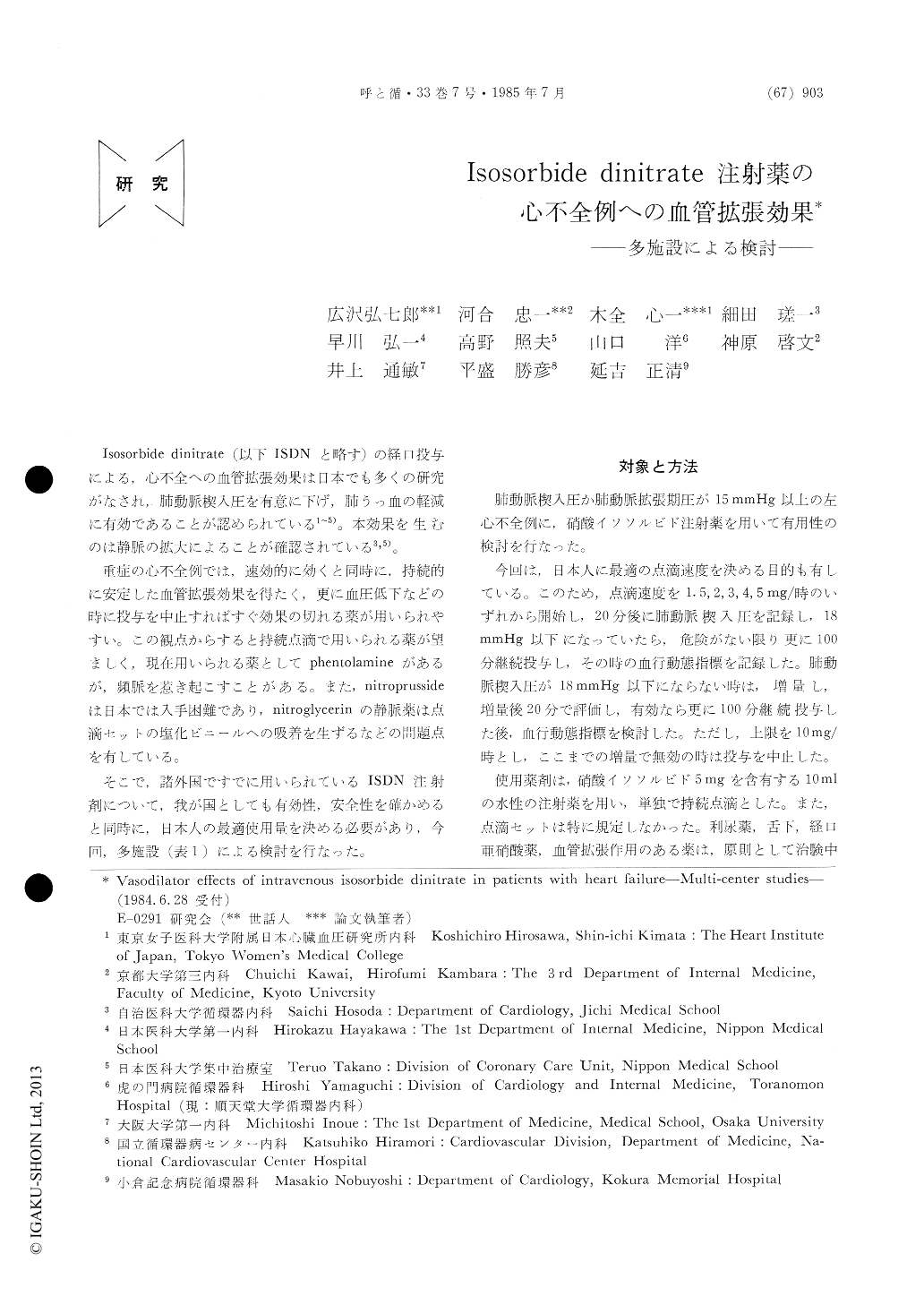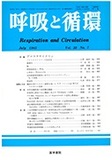Japanese
English
- 有料閲覧
- Abstract 文献概要
- 1ページ目 Look Inside
Isosorbide dinitrate (以下ISDNと略す)の経口投与による,心不全への血管拡張効果は日本でも多くの研究がなされ,肺動脈楔入圧を有意に下げ,肺うっ血の軽減に有効であることが認められている1〜5)。本効果を生むのは静脈の拡大によることが確認されている3,5)。
重症の心不全例では,速効的に効くと同時に,持続的に安定した血管拡張効果を得たく,更に血圧低下などの時に投与を中止すればすぐ効果の切れる薬が用いられやすい。この観点からすると持続点滴で用いられる薬が望ましく,現在用いられる薬としてphentolamineがあるが,頻脈を惹き起こすことがある。また,nitroprussideは日本では入手困難であり,nitroglycerinの静脈薬は点滴セットの塩化ビニールへの吸着を生ずるなどの問題点を有している。
We have recently concerned ourselves with a study to evaluate the clinical utility of intravenous isosorbide dinitrate (abbreviated to ISDN) in terms of vasodilator effect. The subjects of this study consisted of 139 patients with heart failure presenting with pulmonary capillary wedge pressure of and/or pulmonary artery diastolic pressure of, 15 mmHg or more. The pulmonary capillary wedge pres-sure, pulmonary artery pressure, right atrial pres-sure and central venous pressure which are related to the pre-load were significantly depressed 20 min after intravenously injective ISDN, and while the drip infusion was continued, these effects persisted for more than 20 hours. This effects were beneficial for symptoms of left ventricular failure. The cardiac index, on the other hand, did not significantly change, but significantly elevated in the group of Forrester IV Stage.
Side effects which seemed to have been elicited by ISDN consisted of shock in 2 cases. Two patients being shock had dehydration and Eisenmenger syndrome with stenosis of pulmonary capillary arteries and recovered with catecholamine administ-ration.
The attending physicians' global evaluation of intravenous ISDN was -slightly or better usefulness" in 85.8% of patients, and the optimum drip infusion flow of ISDN producing effectiveness ranged from 3 to 10 mg/hr. Intravenous ISDN infusion greatly benefited patients with left ventricular failure.

Copyright © 1985, Igaku-Shoin Ltd. All rights reserved.


